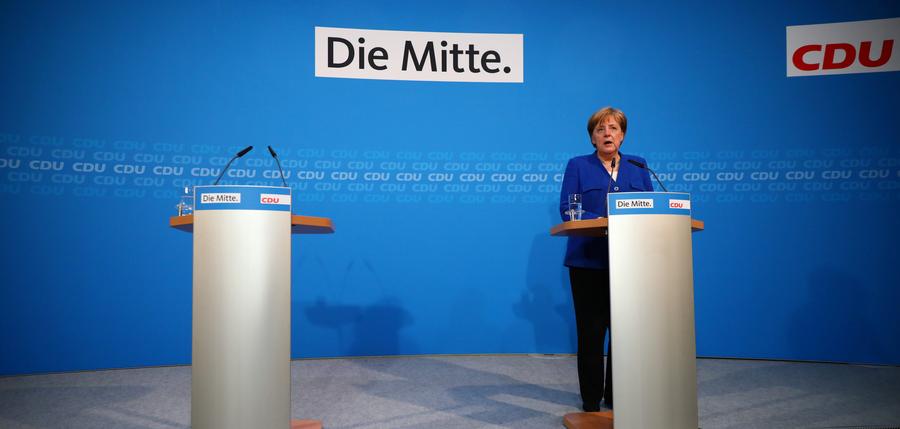Merkel, interior minister reach compromise over asylum policy dispute
Xinhua | Updated: 2018-07-03 09:42

BERLIN - German Chancellor Angela Merkel and Interior Minister Horst Seehofer on Monday night have reached a compromise on their dispute over asylum policy.
Seehofer, who offered to resign as interior minister Sunday night, told reporters that he would also stay in office as he and Merkel's party have reached a clear agreement on how to prevent illegal migration in the future on the borders between Germany and Austria.
Seehofer, also leader of the Bavarian Christian Social Union (CSU), made the remarks after a hours-long meeting with the leadership of the sister party Christian Democratic Union (CDU) led by Merkel.
The two parties were in a dispute over the country's future migration and asylum policy, as Seehofer believed that the European solution reached in EU summit in Brussels last week could not satisfy his party's goal of taking hardened asylum policy.
"A really good compromise after a hard struggle," Merkel told reporters after the meeting, saying it is exactly the spirit of partnership in EU and at the same time a decisive step to control secondary migration.
According to a paper of the agreement distributed by CSU politician Minister of State for Digitization Dorothee Baer, the two parties agreed to introduce new border regime on the border between Germany and Austria, in a bid to prevent asylum seekers registered in other EU states from entering Germany.
The two parties will also establish transit centers to send asylum seekers directly to the responsible countries, according to the paper.
The direct rejection was the biggest issue in the asylum conflict of the sister parties CDU and CSU. Seehofer had campaigned for a direct rejection at the border to prevent asylum seekers from moving from one EU country to another, while Merkel had rejected it strictly and called for a European-coordinated solution.
The conflict had almost toppled Germany's ruling coalition comprised of CDU, CSU and the Social Democratic Party (SPD). Without the support of the CSU, the Merkel-led government coalition could not reach the parliamentary majority.
The compromise ended the "sister dispute" developed for almost three years since the 2015 refugee crisis when Merkel decided to open German border for refugees.
The move had impacted greatly upon the bordering state Bavaria and the dispute escalated after Seehofer became interior minister and remains CSU chairman.
Seehofer hoped to make asylum policy stricter to retain absolute majority in Bavarian regional elections in October. CSU is facing fierce competition from the anti-migration right-wing populist Alternative fuer Deutschland (AfD).
























